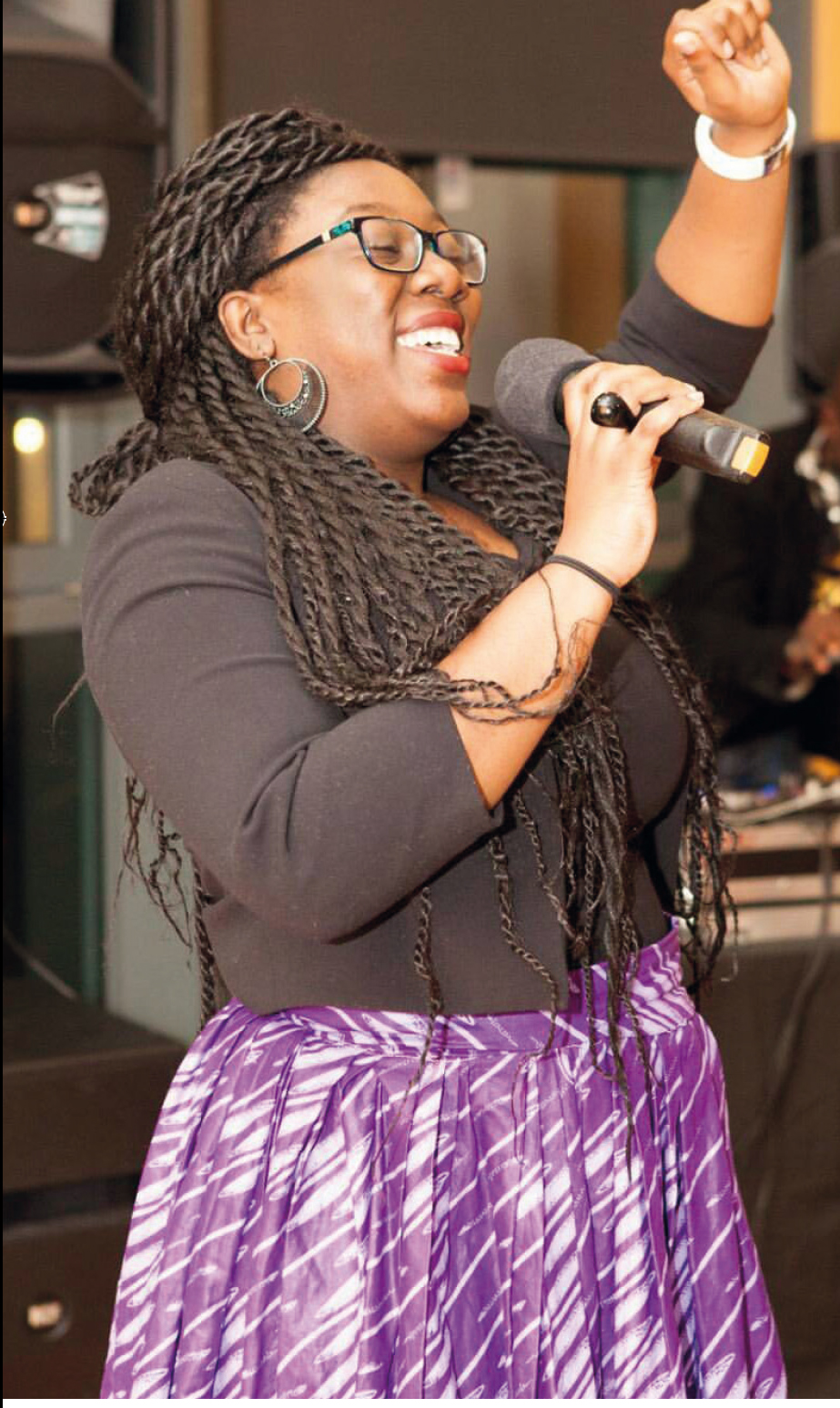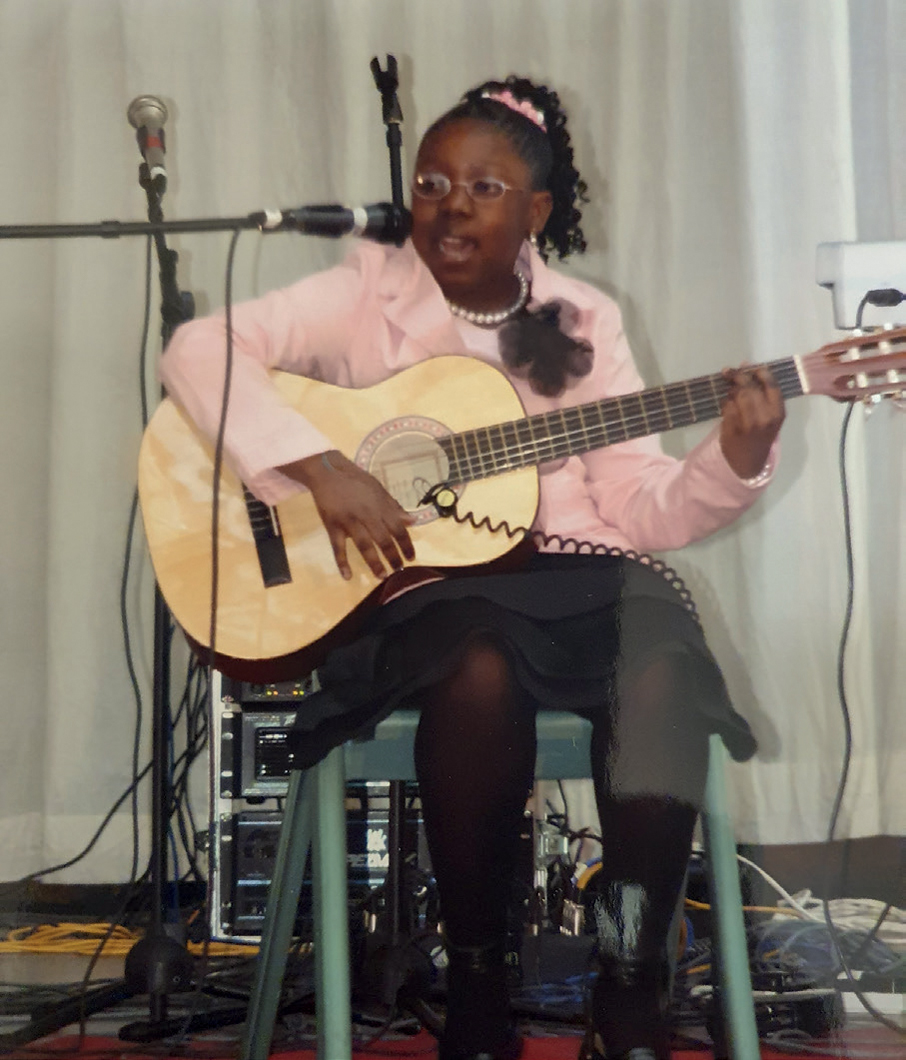
In my first year of teaching I was invited to a maths conference. The presenter had flown over from Singapore and he said that he found the attitude towards maths in the UK rather peculiar. He thought it was strange that some people would voluntarily share that they're no good at maths. I sat with that thought for a few days following the conference because it made me think about society's perception of one of the things I love most in the world: music. And more specifically, singing.

There tends to be a general consensus around singing: either someone can or they can't. The majority of people get their view of their own ability from experiences at school. It never ceases to amaze me just how formative those years in school are for cultivating a love of music. You may not be able to remember very much from your school days but, more often than not, you will remember at least one song, no matter how old you are now.
For me, my love for music was definitely influenced by school but a large part of it came from church. I owe a lot to the church I grew up in. It provided me with a way of learning music that I would not have been exposed to had I only been involved in school choirs and Saturday clubs provided by the local music service. It gave me a good grounding for the musical concepts I would later encounter in my career.
School experience
I was very fortunate to grow up in a London borough that had (and still has) wonderful music provision. My primary school had a music specialist, so we were able to have a choir and music clubs. I was in the choir and the guitar club for most of my time there. This allowed me to get into the guitar orchestra that was organised by the music service on Saturdays. I didn't grow up in the most affluent household, so it was a real privilege to have this opportunity. I had such a great time being part of the guitar orchestra, but no one there looked like me: I was the only black person. Most of my friends there were white and came from well-to-do families. Unlike me, they weren't on free school meals; they weren't paying in instalments; and they weren't denied a music scholarship to get into the ‘good’ secondary school that we were all performing in. I suppose it wasn't enough to be able to sing and play guitar at the same time, but I’m thankful that my thinking wasn't clouded by the reality of it all. I was just there to play my instrument and spend time with my friends, but it wasn't the last time I would be the only black woman in a musical space.
A church education
During my schooling, equality and inclusion wasn't a huge focus for me. I spent so much time in church that I didn't really have time to feel like I was excluded or a minority. I attended the Pentecostal church, with a mainly black congregation, and was there several times a week for various activities, from prayer meetings to guitar lessons. Music played a very large role in my church life; in other places, there was typically some barrier to learning but those barriers were non-existent in my church. The opportunity to learn music wasn't based on household income, socio-economic background or whether you could understand notation. It was free for all.
We had a teacher to deliver guitar and keyboard lessons and, of course, there was a choir. My school choir and church choir operated in a similar way when it came to the teaching and learning of songs. That is, until we had a music director who joined us from Nigeria. The very first song he taught us was Handel's ‘Hallelujah Chorus’ from Messiah and we learnt it through solfège. Beyond what I knew from the Sound of Music soundtrack, I didn't know anything about solfège at that time, but it's a common way of learning music in Nigeria. It wasn't until later in my career that I rediscovered solfège, when learning about Kodály and his principles during my teacher training.
Career choices
I didn't always know what I wanted as a career. I was that girl who changed her mind based on the main character of whatever film she had last watched. All I knew was that I wanted to work with children and young people and so my first degree was in childhood and youth studies. I would have loved to study music at university but it was discouraged. In my culture, studying the arts was frowned upon, typically; not because there isn't an appreciation of them, but because music, drama and dance weren't seen as sustainable career choices unless you were exceptionally talented. Thankfully, the culture is moving in a progressive direction. My family has always supported my passion for music, but they thought it best I study a subject that had a wider reach.
Teacher training
I eventually decided to do a PGCE and found a primary education course that allowed me to choose music as a specialism. It was a small cohort that had chosen the music elective and I (as expected) was the only black person there. During our first session, we all had to share our musical backgrounds and, after I shared mine, the lecturer asked if I could read sheet-music. I wouldn't have thought anything of his question had it been asked of everyone, but it wasn't. I was the only one he questioned. There was definitely some insecurity for me around being the only person whose primary instrument was voice while everyone else had more ‘formal’ instrumental training and for much longer. The lecturer said that he asked this because of my gospel background and that many gospel artists don't necessarily read music. While that may be true, this does not mean, I thought, that their musical ability is invalid or less valuable.
 © Courtesy Funsho Ijiti
© Courtesy Funsho Ijiti
Tolu's first solo performance, New Covenant Church
Many of today's popular artists either grew up in the church or had some engagement with it, and those that didn't are still aware of its musical influence. There is a whole learning style that isn't being tapped into and this can put many people, especially young people, at a disadvantage.
I know teenagers who have the most brilliant ear for music and can play chords that a well-seasoned professional would struggle to name; but put a page of Beethoven's Symphony No. 5 in front of them and it would go over their head. Not because they can't play it, but because they learn and experience music difierently. To their music teacher, it might look like that student isn't capable; but the truth of the matter is they may not have had access to notation. They were never given a chance and this is why accessibility is so important in music education.
Benefits of sharing
So where do we go from here? There's a simple quote I like to live by: ‘Do your best until you know better and once you know better, do better.’ A lot of practitioners are doing their best. With the constant scrutiny that music education finds itself under, sometimes that's all we can do; but we can't improve on what we don't know.
Sharing stories is one way of helping others discover what they don't know. When I started writing this article, I feared that it may be too autobiographical but quickly realised that people need to hear the stories of the underrepresented. I remember sharing my teacher-training experience at a conference and witnessing visible shock and gasps in the room; many people genuinely have no idea that there are still deep-rooted issues around accessibility and diversity in music spaces.
I consider myself fortunate to have the career that I do. I am now a music specialist in a wonderful primary school, a vocal health first-aider and I’ll be starting a master's degree at a prestigious music conservatoire later this year.
Make provision
My musical upbringing isn't one that most would call traditional. I didn't have piano lessons; I figured my own way around a secondhand keyboard. I didn't do any graded exams but I can participate in social music-making in a way that someone more formally trained may not be able to. Part of my success is due to the fact that I had people that supported me and actively exposed me to different opportunities – accessibility can really be that simple.
If you know something, share it beyond the scope of its normal audience. Make provisions for those that may not look like you, recognising that provisions don't have to cost the earth; it could be as simple as restringing an instrument for someone left-handed, having ramp access to a stage or learning a song in a language or from a country that represents the demographic you are engaging with. ‘Inclusive’ does not have to mean ‘expensive’, but it should be effective. In most cases, what's good for some is good for all.
There is no ‘right way’ to do music. There is no one way either, but there should be as many avenues as possible. Whether it's through school, local music services, an online course or a religious setting, music education, in whatever form, should be accessible to all and inclusive of all.








